DKM Pearls Help and Tutorial
Now let's start solving the puzzle from the previous page.
The easiest place to start is around the borders. Because lines need to pass through
white pearls, those at a border can only pass one way (see Figure 5).
Black pearls on the border or one away from the border will always have one line
travelling inwards. In Figure 6 you can see that a line moving from the black pearl towards
the border will not be able to pass through the cell next to that pearl (Black rule).
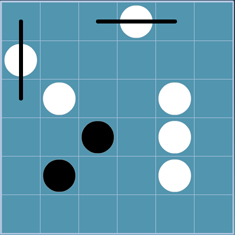 | 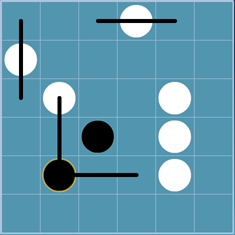 | |
| Figure 5 | Figure 6 |
When there are three (or more) white pearls adjacent, the line cannot pass straight through them because the
line would not turn either side of the middle one. Therefore, the path must take three parallel lines through the
pearls (see Figure 7).
We can also see that there is only one way the lines can pass through the second black pearl and also only
one way to join the line down the first column (and that is through the bottom row) - Figure 8.
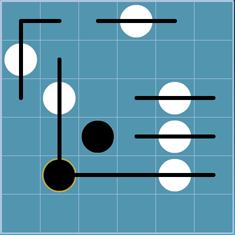 | 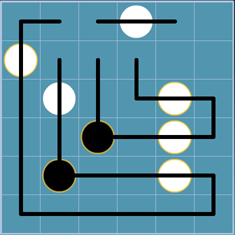 | |
| Figure 7 | Figure 8 |
It is straight forward to see how the lines join up now to complete this simple puzzle.
Figure 9 demonstrates some other patterns to look for.
If there are two white pearls adjacent on the border, the line must turn inward
at either end.
If there are two white pearls adjacent with one at the border, then the line must pass through each of them them parallel
to the border.
If there are two black pearls adjacent anywhere in the grid, one of the lines from each must extend outward in
the opposite direction to the adjacent pearl.
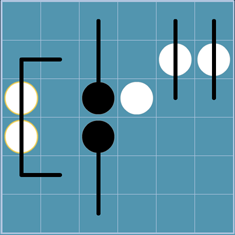 |
| Figure 9 |
Now that you are familiar with the basics - it's time to start solving!